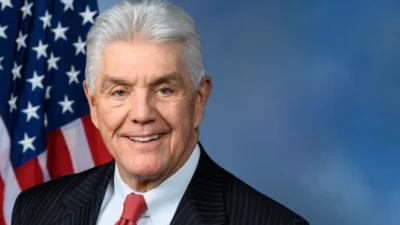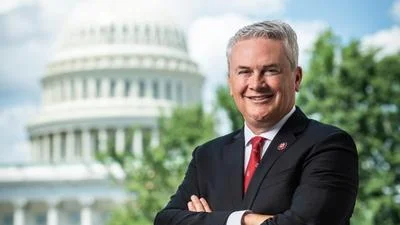Welcome, Secretary Lew.
This Administration first presented a budget to Congress six years ago. Back then, in the months of February and March of 2009 - just weeks after President Obama took office - the economy lost more than 1.5 million jobs, the most of any two-month period since World War II.
Today, the economy has experienced significant growth, with 58 consecutive months of private-sector job gains. Over the past four years, the U.S. has put more people back to work than Europe, Japan, and all the world's major advanced economies combined.
That’s hardly a “stagnant economy."
Republicans can try to minimize that dramatic turnaround, but it is instructive to revisit what their party’s presidential nominee in 2012 promised to achieve by the end of his first term in office.
Mitt Romney said, and I quote, “I can tell you that over a period of four years, by virtue of the policies that we’d put in place, we’d get the unemployment rate down to 6 percent, and perhaps a little lower."
Today, nearly two years before that deadline, the unemployment rate has dropped to 5.6 percent.
The ongoing challenge that we confront - a challenge that has persisted for the last three decades dating back to the Reagan years - is how to ensure that middle class families are not left out of the growth our economy is experiencing now and in the future.
The President’s budget takes direct aim at that challenge. It includes proposals to support working families by making child care more accessible, guaranteeing paid sick leave and making permanent extensions of vital provisions including the Earned Income Tax Credit, Child Tax Credit and American Opportunity Tax Credit.
It combines changes in the international tax structure and provisions for the long-term needs of our nation’s infrastructure. It closes tax loopholes that predominantly benefit a select few.
These proposals aren’t envy economics, they are everyone economics. They are not the economics of envy, they are the economics of working for all, not just the very wealthy.
Through a fiscally responsible replacement for the sequester, the President’s budget would allow us to invest in education, medical research and other domestic priorities as well as provide the resources Social Security, Medicare, and the IRS need to serve the American people. And it would provide for the ever-changing needs of our military as it confronts new challenges.
I hope that Republicans give these and the other proposals presented within the President’s budget the full and serious consideration that they deserve.
One of the many outstanding issues in the Trans-Pacific Partnership negotiations - currency manipulation - is mainly in the purview of Treasury.
Over the past decade, currency manipulation by foreign governments has resulted in an increase in unfairly traded imports into the United States. It has made it more difficult for U.S. exporters to compete in foreign markets.
It has cost us millions of middle class jobs.
TPP includes a number of former currency manipulators, such as Japan. Other countries discussing relationships to TPP in the future - such as China, Korea, and Taiwan - also have a track record of manipulating their currencies.
Each of these countries is party to the IMF, which already prohibits currency manipulation and has developed guidelines to define when it occurs. The problem is that the IMF lacks any enforcement mechanism.
That’s why I have proposed taking the existing IMF guidelines, and building upon them, so they can be addressed through TPP.
I have heard concerns that the U.S. monetary policy might be at risk if we put such a provision in the TPP.
The IMF guidelines clearly spell out that U.S. monetary policy, including quantitative easing, is not currency manipulation. The first factor is protracted, large-scale interventions in currency markets - the United States does not engage in protracted or large-scale interventions.
The second factor is having an excessive amount of foreign exchange reserves. I could go through each factor, but suffice it to say that the IMF itself has explicitly supported each round of U.S. quantitative easing since the Great Recession.
U.S. monetary policy would not be put at risk by addressing currency in TPP.
I look forward to discussing with my colleagues - on a bipartisan and bicameral basis - and with the Administration how to include a strong and enforceable currency manipulation provision, as well as tackling the other major outstanding issues in TPP that I outlined late last month in a document that I called “A Path Toward an Effective TPP Agreement."
Thank you, Secretary Lew, for your dedication and service to our nation and I am very happy to welcome you back before this committee.









